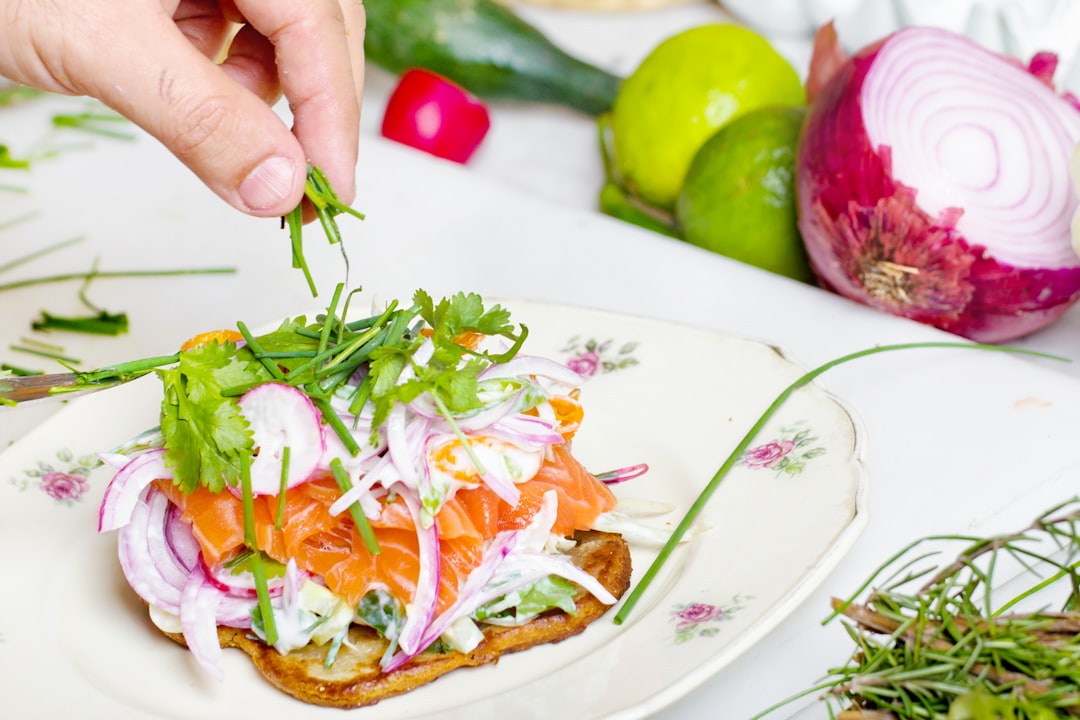
Plant-Based Sports Nutrition for Active Women
Unleash Your Inner Champion: Plant-Based Nutrition Tips for Female Athletes
Are you ready to unleash your inner champion and power your athletic performance with the vibrant energy of a plant-based diet? For female athletes eager to level up their game, embracing plant-based nutrition is like unlocking a secret weapon. Imagine fueling your body with colorful legumes, hearty whole grains, and crunchy nuts and seeds, each bite bursting with nutrients that keep you energized and ready to conquer any workout. But how can you ensure you're getting enough protein and essential vitamins? Fear not! We’ve got practical tips and scrumptious meal ideas tailored just for you. From the best plant-based pre-workout meals to delicious post-workout recovery options, this guide will empower you to thrive, turning your fitness goals into glorious achievements. So, lace up your sneakers and let’s dive into the world of plant-powered performance!
Fueling Your Performance
Key Protein Sources for Plant-Based Athletes
Protein is crucial for muscle repair and growth, especially for athletes. Luckily, there are plenty of plant-based protein sources that can meet your needs. Lentils and chickpeas are fantastic options, offering around 18 grams of protein per cup. Quinoa is another superstar, providing all nine essential amino acids. Don't overlook nuts and seeds like almonds, chia seeds, and hemp seeds, which are not only packed with protein but also healthy fats. Tofu and tempeh are versatile choices that can be added to almost any dish. And for a quick snack, roasted edamame offers a protein punch. Incorporating a variety of these foods will ensure you get a complete amino acid profile, keeping you strong and ready to tackle your next workout.
Best Plant-Based Pre-Workout Meals
Fueling up before a workout is essential for peak performance, and there are plenty of plant-based options to choose from. A smoothie made with bananas, spinach, and a scoop of plant-based protein powder can give you a quick energy boost. Oatmeal topped with berries and a sprinkle of chia seeds is another great choice, providing sustained energy from complex carbs and healthy fats. If you prefer something savory, try avocado toast on whole grain bread with a side of cherry tomatoes. For those who need a portable option, a trail mix made of nuts, seeds, and dried fruit can be perfect. These meals are not only delicious but also packed with the nutrients you need to power through any workout.
Vegan Sports Supplements for Women
While a well-rounded diet can provide most of the nutrients you need, vegan sports supplements can fill any gaps and optimize performance. Protein powders derived from peas, rice, or hemp are convenient post-workout options to support muscle recovery. B12 is another key nutrient often lacking in plant-based diets, so a B12 supplement can be vital. Omega-3 fatty acids, typically found in fish oil, are available in algae-based supplements, important for reducing inflammation. Iron is crucial for oxygen transport and energy levels, and a vegan iron supplement can help if you're prone to deficiency. Lastly, consider a vitamin D supplement, especially if you have limited sun exposure. These supplements can complement your diet, ensuring you maintain optimal health and performance.
Enhancing Recovery and Strength
Post-Workout Recovery for Vegan Athletes
Recovery is as crucial as the workout itself. For vegan athletes, focusing on nutrient-rich recovery meals can make a big difference. Start with a protein-rich smoothie using a plant-based protein powder, spinach, and berries. This not only aids muscle repair but also replenishes glycogen stores. Sweet potatoes are another excellent post-workout food, packed with carbohydrates and vitamins. Pair them with black beans for a protein boost. A quinoa salad with mixed greens, cherry tomatoes, and avocado offers a balanced mix of protein, healthy fats, and antioxidants. Hydration is also key. Consider coconut water for its electrolytes, or add a pinch of sea salt to your water bottle. These strategies help ensure your body recovers efficiently, ready for the next challenge.
Balancing Nutrients with Whole Foods
Achieving a balanced nutrient intake is essential for any athlete, and whole foods are your best ally. Fruits and vegetables should form the cornerstone of your diet, providing essential vitamins and antioxidants. Think of vibrant greens, juicy berries, and zesty citrus fruits. Whole grains like brown rice, quinoa, and oats supply complex carbohydrates, crucial for sustained energy. Meanwhile, legumes such as lentils and black beans offer plant-based protein and fiber, supporting muscle repair and digestive health. Nuts and seeds, including almonds and flaxseeds, deliver healthy fats and additional protein. These foods ensure you're not only meeting your macro needs but also getting a variety of micronutrients. By focusing on whole, unprocessed foods, you can maintain a nutrient-dense diet that supports both recovery and long-term health.
Delicious Vegan Athlete Meal Ideas
Creating tasty and nutritious meals can make a world of difference in your performance and recovery. For breakfast, try overnight oats made with almond milk, chia seeds, and fresh berries—simple, quick, and packed with energy. Lunch could be a hearty chickpea and avocado salad, drizzled with lemon-tahini dressing for that extra zing. When it's time for dinner, opt for a quinoa and black bean bowl with sautéed veggies and a dollop of guacamole. This meal is both satisfying and nutrient-dense. Snacks are also important; think apple slices with almond butter or a handful of trail mix. These meal ideas ensure you get a variety of nutrients, helping you stay energized throughout the day and recover efficiently after workouts.
Mastering Your Nutritional Game
Crafting a Plant-Based Diet for Female Athletes
Designing a plant-based diet that fuels athletic performance involves strategic planning. Start by focusing on variety. Incorporate a wide range of fruits, vegetables, whole grains, and legumes to cover all your nutritional bases. Each meal should include a source of protein such as beans, tofu, or lentils. Complement these with healthy fats from avocados, nuts, and seeds which are essential for hormone regulation and sustained energy. Carbohydrates are your body's primary energy source, so don't shy away from them. Opt for complex carbs like sweet potatoes, whole grains, and quinoa. Don't forget about hydration and electrolytes; water is vital, but you might also consider coconut water or homemade electrolyte drinks. Tailor your intake to match your training intensity and goals, ensuring you consume enough calories to support your active lifestyle. This approach helps maintain energy levels and supports recovery, empowering you to excel in your athletic pursuits.
Building Energy with Legumes and Grains
Legumes and grains are powerhouse foods that provide the energy and nutrients needed for peak athletic performance. Lentils, chickpeas, and black beans are excellent sources of protein and fiber, which support muscle health and keep you satiated. They're also rich in iron and folate, vital for oxygen transport and energy production. Grains like quinoa, brown rice, and oats are packed with complex carbohydrates, ensuring a steady release of energy to fuel your workouts. They're also abundant in B vitamins, which play a crucial role in energy metabolism. Pairing legumes with grains not only creates a complete protein profile but also maximizes nutrient absorption. Incorporate these versatile foods into your meals by adding them to salads, soups, or stir-fries, or enjoy them as a base for hearty bowls. This combination helps sustain energy levels, allowing you to train harder and recover faster.

Incorporating Healthy Fats and Vital Vitamins
Healthy fats and vitamins are essential for athletes aiming to maximize their performance and recovery. Avocados, nuts, and seeds like chia and flaxseed provide omega-3 and omega-6 fatty acids, which help reduce inflammation and support joint health. These fats also aid in the absorption of fat-soluble vitamins such as A, D, E, and K, crucial for bone health, immune function, and antioxidant protection. Leafy greens like spinach and kale, as well as brightly colored vegetables such as bell peppers and carrots, are rich in vitamins C and A. These vitamins not only support recovery but also enhance your body's ability to fight off illnesses. Including a variety of these foods in your diet ensures you're getting a comprehensive range of nutrients. Drizzle olive oil on salads, add nuts to your oatmeal, or snack on a handful of seeds to seamlessly incorporate these vital components into your meals.








